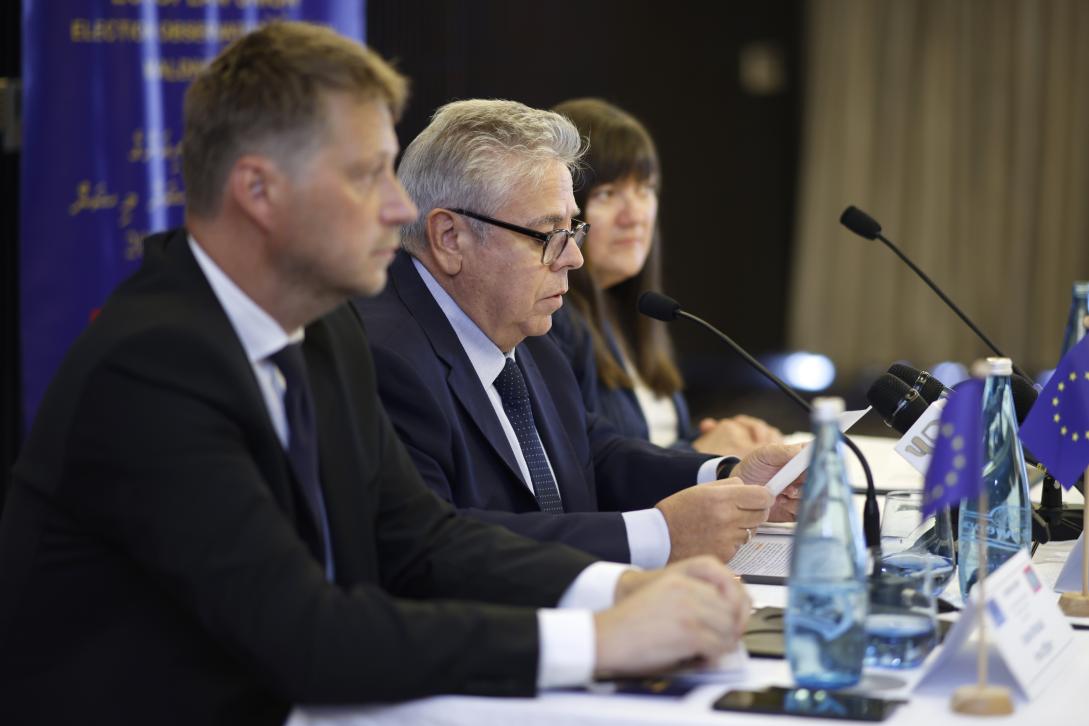Well-handled and competitive first round. Need to improve equity on the playing field

The Chief Observer, Nacho Sánchez Amor, a Member of the European Parliament from Spain, today presented the preliminary findings of the European Union Election Observation Mission (EU EOM) on the 9 September presidential elections in the Maldives.
“The fourth presidential election since the introduction of multi-party democracy offered voters choice of candidates and, during a peaceful campaign, fundamental rights were largely respected. However, the pre-election environment was affected by allegations of instrumentalisation of state resources”, said Mr. Sánchez Amor at a press conference in Malé today.
On election day, the conduct of polling and counting was orderly and efficient and in accordance with polling procedures, with few irregularities reported. The provision of a tactile ballot guide, for the first time, facilitated the independent voting of persons with visual impairment.
Elections Commission of Maldives (ECM) performed its work impartially and professionally, complied with legal deadlines despite staff shortages and made several procedural improvements to the administration of voter registration, conducted in a transparent manner. The ECM also undertook a straightforward candidate registration process. However, ECM’s communication with election stakeholders and its voter education efforts were limited; perceptions of the ECM’s independence were undermined due to the process of the appointment and removal of commissioners.
The electoral legal framework provides an adequate basis for the conduct of democratic elections broadly in line with regional and international standards subscribed to by the Maldives. The dispute resolution system offers means of redress at all stages of the process. Yet, the campaign finance framework is lightly regulated and poorly enforced. In addition, the lack of transparency of candidates' income and expenditure is also a concern, and the ECM, responsible for scrutinising campaign finance reports, lacks the capacity to adequately carry out this task.
Frequent allegations of instrumentalisation of state resources, including through state-owned enterprises, have raised questions about equity in the campaign. Although the public media allocated free and paid airtime to all candidates as legally required, in news and editorial programmes, they blurred the lines between governmental functions and campaign activities. Private TV channels showed a clear political bias.
“While the record number of eight candidates offered a wide choice to the voters, given that all the candidates were men, I would like to urge political parties to take robust measures to promote women’s participation in national politics in line with the commitment made by the Maldives by signing the relevant international standards”, said Mr. Sánchez Amor.
The EU deployed 40 observers from EU Member States as well as Canada, Norway and Switzerland who visited 124 polling stations in 52 islands, including in Male and in 12 atolls across the country. The mission will remain in the Maldives until the conclusion of the process, to assess the second round, complaints and appeals process of the presidential election.
COORDONNÉES
Marek Mracka
Press Officer
[email protected]
(+960) 796 0031
